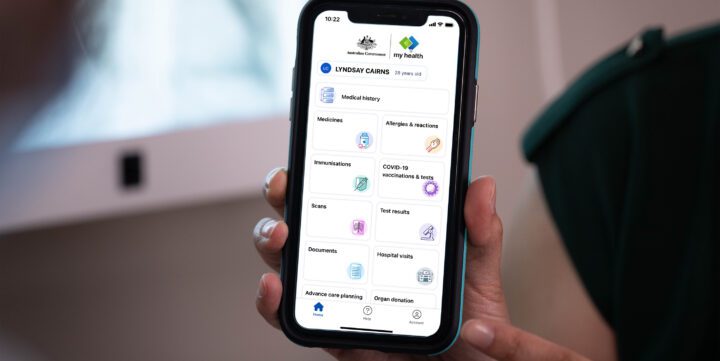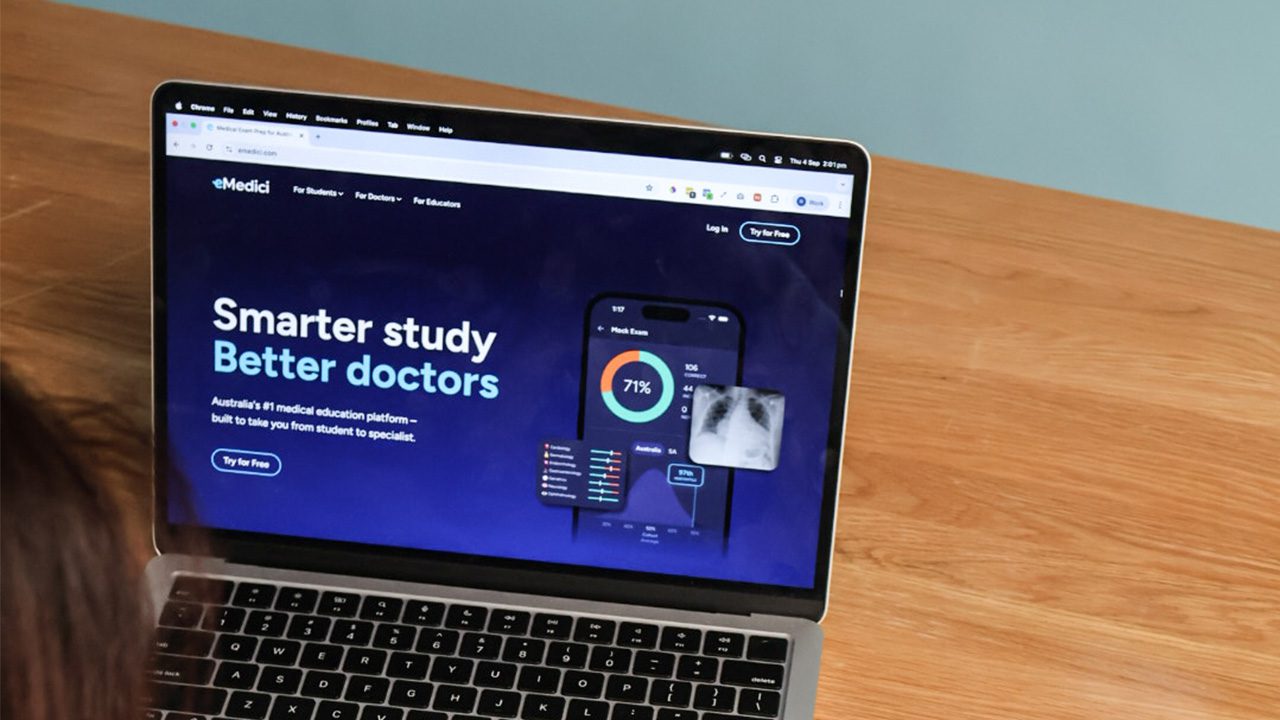Data Silos: Is the Answer in My Health Record?
February 24, 2024
My Health Record for All Australians
My Health Record represents a transformative step in Australian healthcare, transitioning from the Personally Controlled Electronic Health Record (PCEHR) to a more integrated, national digital health record system. Managed by the Australian Digital Health Agency, My Health Record is a pivotal tool in realising an ongoing vision of a connected health system across Australia. Originally an opt-in model, the shift to an opt-out system marks a critical policy change aimed at broadening participation and ensuring a comprehensive health record for Australians. This system allows for an accessible, secure electronic summary of an individual’s medical history, including medications, allergies, immunisations, and significant medical events, thereby facilitating improved clinical decision-making and patient care. Is this the answer to data silos in healthcare and do the benefits outweigh the risks?
Health Records and Their Evolution
In Australia, the average individual engages with the health system 22 times a year across various settings, generating disparate pieces of health information. Prior to My Health Record, this information was scattered across multiple paper-based and digital systems, from primary care settings, allied health cloud systems, and hospitals still using paper-based records, making it challenging for healthcare providers to gain a holistic view of a patient’s health status. This fragmentation has been understandably linked to adverse drug events, medical errors due to inadequate patient information, and a significant amount of clinician time spent gathering information rather than treating patients. On top of this, we know that there are significant conflicts of interest and barriers to healthcare when the patient is relied on for their recount and has a unique ability to shape the objective outcomes in some cases. My Health Record addresses these issues by consolidating health data in a single, easily accessible location, thereby enhancing patient safety, improving the efficiency of healthcare delivery, and reducing unnecessary testing.
How My Health Record Works
My Health Record operates on a sophisticated technology platform, ensuring the secure storage and sharing of health information across the healthcare system. When a patient opts into My Health Record, they are assigned a unique Individual Healthcare Identifier (IHI), which is used to accurately match their health information across different healthcare providers. Patients and healthcare providers can contribute to and access the My Health Record, making it a dynamic, comprehensive health record. The system’s design emphasises security and patient control, allowing individuals to manage who can view their health information. Additionally, the Australian Digital Health Agency plays a crucial role in overseeing the system’s operation, ensuring it meets national security standards and supports the needs of both patients and healthcare providers.
It offers very significant benefits to both patients and healthcare providers by enabling more informed decision-making and improving the continuity of care. For patients, My Health Record provides a consolidated view of their health information, accessible anywhere, anytime. This is especially beneficial in emergency situations when seeking a history or basic medical information, or when seeking care from multiple providers in complex health issues. For healthcare providers, My Health Record reduces the need for duplicate tests and procedures, saving time and resources. Additionally, the system supports better clinical outcomes through improved medication management, allergy tracking, and immunisation records. Overall, it facilitates a more efficient, effective, and patient-centred healthcare system.
What Stops Australians Engaging in My Health Record?
While offering significant benefits for patient care and healthcare system efficiency, it has also faced concerns from patients that have affected their engagement with the system. Understanding these concerns is crucial for healthcare providers, to address patient hesitations effectively and encourage broader participation.
One of the most significant concerns for patients is the privacy and security of their personal health information. Patients worry about the risk of unauthorised access to sensitive health data due to cyberattacks or system vulnerabilities. Despite the robust security measures in place, such as encryption and access controls, high-profile data breaches in the health sector broadly have made patients wary of digital records systems. A step back from this, patients have expressed concerns about who can access their health information and for what purposes. The idea that various healthcare providers can view their health records without explicit consent for each access can be unsettling for some individuals, and some want assurance that they retain control over their health information, including the ability to restrict access to certain parts of their record at any time.
Despite being able to control access for their current and future health practitioners, the complexity and perceived usability of the system has certainly deterred engagement. Some patients find it challenging to navigate the system, set privacy controls, or understand how to opt out. This complexity can be particularly daunting for older individuals, those with limited digital literacy, or people from non-English speaking backgrounds. Supporting this complexity and contrasting the intentions, there’s a significant gap in awareness and understanding of the benefits and functionalities of My Health Record among patients. Many individuals are not fully informed about how it works, its benefits, or how to use it effectively. This lack of information can lead to apathy or reluctance to engage with the system.
The transition to an opt-out model, where individuals automatically have a profile created unless they choose not to, has also raised concerns. Some patients feel this approach infringes on their autonomy and right to choose, leading to distrust or dissatisfaction with the system. The reluctance to engage with My Health Record can stem from a combination of the above concerns, and engaging for the benefits listed before has begun to fall on the shoulders of the General Practitioner to educate patients on the solutions to the above issues and navigate concerns.
Is My Health Record our Best Step Forward?
General Practitioners are at the forefront of utilising My Health Record to enhance patient care. Integrating My Health Record into daily practice allows GPs to quickly access up-to-date patient health information, contributing to more informed clinical decisions. GPs play a crucial role in encouraging patient engagement with My Health Record, explaining the benefits, and addressing any concerns. Additionally, GPs are responsible for uploading critical health summaries and documents, ensuring that the system contains comprehensive and current patient health data. This proactive involvement helps optimise the quality of care provided to patients, making healthcare delivery more efficient and effective.
As will always be the case, security and privacy are fundamental to the design and operation of My Health Record. The system employs advanced security measures to protect health information, including encryption, access controls, and audit logs. Moreover, My Health Record complies with the Privacy Act 1988 (Cth) and other relevant legislation, ensuring that patient information is managed responsibly and ethically. Patients have the right to control access to their My Health Record, including setting access codes and determining which healthcare providers can view their records. These robust privacy protections address common security concerns and underscore the system’s commitment to safeguarding patient information.
GPs have a pivotal role in promoting My Health Record to patients, highlighting its benefits for personal health management and the continuity of care. By engaging in open discussions, GPs can address misconceptions and demonstrate how this system enhances healthcare delivery.
Next Steps
The future of My Health Record is focused on continuous improvement and expansion, with ongoing enhancements to increase functionality, user-friendliness, and integration with other health technologies. The Australian government and the Australian Digital Health Agency are committed to evolving My Health Record, incorporating feedback from healthcare providers and patients to enhance its utility. Future developments may include more advanced analytics capabilities, integration with emerging health technologies, and expanded features for patient health management. These enhancements will further solidify My Health Record’s role in advancing Australia’s healthcare system, making it more connected, efficient, and patient-centred.
As GPs, embracing My Health Record and advocating for its use are crucial steps in realising its full potential. By actively engaging with My Health Record, GPs can enhance the quality of care they provide, improve healthcare outcomes, and contribute to a more sustainable healthcare system. The call to action for GPs is clear: leverage My Health Record as a tool for advancing healthcare delivery, ensuring that patients across Australia receive the best possible care.












